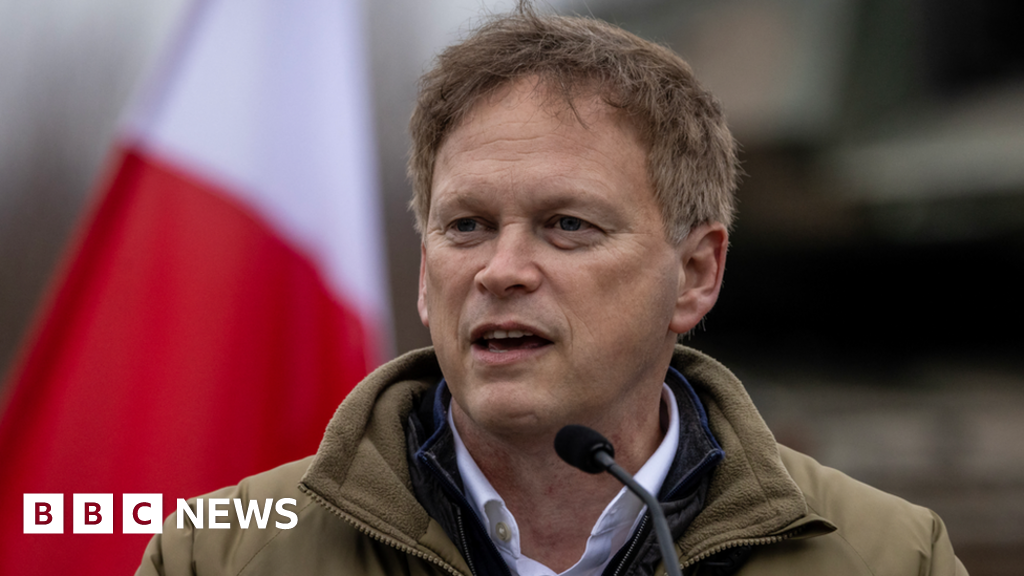- By Thomas Mackintosh
- BBC News
Image source, Getty Images
Grant Shapps made his second visit to Ukraine as defence secretary last week
Grant Shapps aborted a trip to southern Ukraine last week for “security reasons”, the UK defence ministry said.
The defence secretary had to scrap his visit to Odesa last week after UK intelligence reportedly warned Russia had become aware of his travel plans.
Five people were killed in the strike, Ukrainian authorities said.
Mr Shapps had travelled on an overnight train from Poland to Ukraine, accompanied by chief of the defence staff, Adm Sir Tony Radakin, and a small team of British officials. The aim of their journey was to meet Ukrainian leader Volodymyr Zelensky and senior members of his wartime administration.
But having arrived in Kyiv on 7 March, Mr Shapps’s onward journey to Odesa was cancelled abruptly at the last minute, following fears surrounding his safety.
According to the Sunday Times, which had a reporter travelling with his delegation, the trip was called off after an intelligence update revealed the Kremlin’s knowledge of it.
It added that the strike in Odesa the previous day raised the threat level to Mr Shapps’s safety from substantial to critical.
“Putin has shown himself to be reckless, ruthless and careless,” Mr Shapps told the newspaper.
“The fact that he came perilously close to essentially assassinating two western leaders, it doesn’t matter whether that is deliberate or accidental.
“What the hell is he doing, and why the heck would the West allow him to do that kind of thing?”
A Ministry of Defence spokesperson said: “On a recent trip to Ukraine, the defence secretary did not make a planned visit to Odesa for security reasons.
“The UK continues to provide strong support for Ukraine and the defence secretary’s visit and engagements only underscored the importance of this support in the face of Putin’s aggression.”
Earlier this week it emerged that an RAF plane carrying Mr Shapps between the UK and Poland had its GPS signal jammed while flying close to Russian territory.
Mr Shapps’s comments come as the Latvian foreign minister called on the UK and other Nato countries to consider conscription to deter Russia.
In January, the Baltic state bordering Russia re-introduced conscription – meaning men aged between 18 and 27 must complete 11 months of military service – in a bid to increase the size of its army
Asked by the Sunday Telegraph if the UK and other countries should follow Latvia’s model, Krisjanis Karins said “we would strongly recommend this”.










